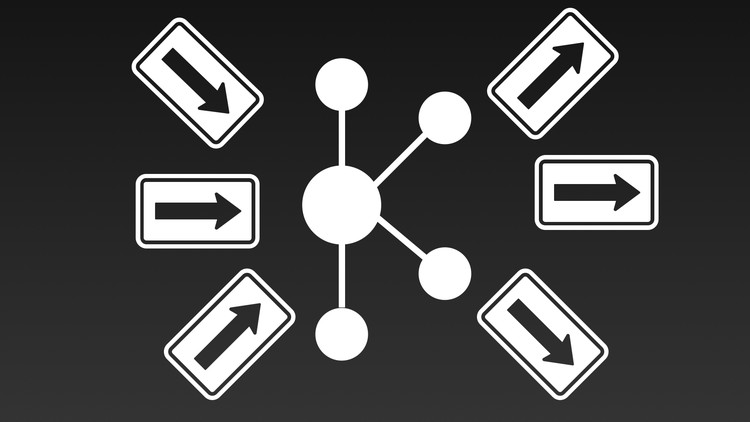
Kafka Basics for Beginners
What you will learn
What is Kafka?
Advantages and Disadvantages of Kafka
Understanding the difference between Kafka and Traditional Messaging Systems
When to use and When to not use Kafka
Kafka Key Concepts- Clusters, Brokers, Partitions, Offsets,Events,Producers,Consumers,Consumer Groups,Consumer Offsets etc
Topic Replication
Kafka Storage and Message Retention
Kafka Streams and Kafka Connectors
Zookeeper
Kafka Security
Hands-On: Kafka Installation and Environment setup
Hands-On: Create Topics, List Topics , Describe Topics and Delete Topics
Hands-On: Produce and Consume Messages
Hands-On: Setting Multi Broker Cluster
Hands-On: Perform Topic Replication and Check Fault Tolerance
Read __consumer_offsets Topic
Configure Message Retention at Topic level
Description
Kafka is an open source distributed event streaming platform. It is currently used by thousands of companies as it can handle huge volume and high velocity of data. It is currently managed by Apache Software Foundation.
This particular course does not need any prior knowledge of anything. You will learn everything about Kafka from scratch.
We are going to learn the below as part of this course.
- What is Kafka ?
- What are the different Advantages of Kafka ?
- What are the different Disadvantages of Kafka?
- A detailed comparison of Kafka with Traditional Messaging Systems ActiveMQ, RabbitMQ etc.
- The various use cases where we should use KafKa
- The various use cases where we should not use Kafka
- Understand Key Kafka Concepts – Kafka Cluster, Kafka Brokers, Events, Producers,Topics,Partitions,Offsets,Consumer,Consumer Groups,Consumer Offsets etc
- Understand the concept of Topic Replication
- Understand how Kafka stores the messages
- Understand the Message Retention concept of Kafka
- A very basic understanding of Kafka Streams
- A very basic understanding of Kafka Connectors
- Understand the significance of Zookeeper with respect to Kafka
- A very basic understanding of Kafka Security
- How to install Kafka in your personal laptop/desktop.
- How to start Zookeeper and Kafka Broker in the Terminal using the command line tools provided as part of the Kafka Installation.
- How to Create Topics, List Topics,Describe Topics and Delete Topics using the kafka-topics script which is provided as part of the Kafka Installation.
- How to publish messages to Kafka Topics using the kafka-console-producer script which is provided as part of the Kafka.
- How to consume messages from Kafka Topics using the kafka-console-consumer script which is provided as part of the Kafka.
- How to set up Multi Broker Cluster
- How to perform Topic Replication and Check Fault Tolerance
- How to read Read __consumer_offsets Topic
- How to Configure Message Retention at Topic level
English
language
Content
Introduction
Introduction
Understanding Kafka
What , When and Why ?
What , When and Why ?
Kafka vs Traditional Messaging Systems
Kafka vs Traditional Messaging Systems
When to use and not use
When to use and not use
Kafka Key Concepts
Kafka Cluster & Brokers
Kafka Cluster & Brokers
Events,Producer and Topics
Events,Producer and Topics
Partitions and Offsets
Partitions and Offsets
Consumers and Consumer Groups
Consumers and Consumer Groups
Consumer Offsets
Consumer Offsets
Topic Replication
Topic Replication
Kafka Storage and Message Retention
Kafka Storage and Message Retention
Kafka Streams and Kafka Connectors
Kafka Streams and Kafka Connectors
Zookeeper and Kafka Security
Zookeeper and Kafka Security
Hands On
Kafka Installation and Environment setup
Kafka Installation and Environment setup
Create Topics, Produce and Consume Messages
Create Topics, Produce and Consume Messages
Setting Multi Broker Cluster
Perform Topic Replication and Check Fault Tolerance
Read __consumer_offsets Topic
Configure Message Retention at Topic level
Configure Message Retention at Topic level